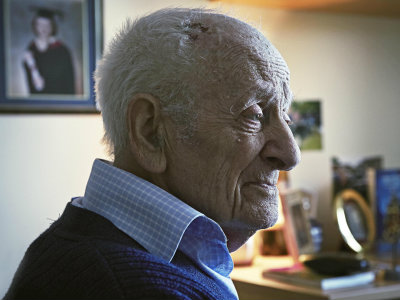
The philosophy of care showcased in Channel 4 documentary Dementiaville will be on show at this year’s Community Care Live in London this November.
Dementia Care Matters chief executive David Sheard, who was series consultant for the documentary screened earlier this year, will be outlining the concept behind the Butterfly Household Model of Care at this year’s event.
The session will also include contributions from professionals who have implemented the model.
No them and us
The key principles behind the model are:
- There is no ‘them and us’ so all barriers between staff and residents are removed, for example, staff don’t wear uniforms; there are no drug trolleys or ‘chemical coshes’; and no separate dining, staff and residents eat together like a family.
- Care homes are broken up into households, each with a front door, so that people don’t have free access to the whole home.
- People with different stages of dementia aren’t mixed together, so each household is dedicated to working with people at particular stages. This decreases stress for residents.
- Family-like care is created by filling each household with things from residents’ pasts such as jobs and where they have lived, just like an average home. By having items around the home residents will create their own activities.
- Accept people as they are, don’t try to fix them. So if, for example, an 80-year-old woman talks about picking her children up from school, go with her reality. “She’s saying that she needs to be needed as she used to be,” says Sheard, speaking to Community Care ahead of the event. “You need to give them the feeling that their past identity and role gave them.”
Butterfly transformation
Sheard explains the thinking behind calling the model ‘butterfly’: “Like the insect, the model is transformational. You start with a chrysalis which turns into a butterfly which can be a metaphor for the change in care, as well as the fact that this approach allows care workers and nurses to create colour in people’s lives.
And just like a butterfly becomes alive when it emerges from the chrysalis, so can people with dementia if you reach their spirit inside.”
Transforming a care home into a Butterfly Care Home is a one-year project. Currently there are over 100 in the UK, three in Canada, and Sheard is in discussions in Australia.
As well as Sheard explaining the belief system behind the model to delegates at Community Care Live, the manager and activities co-ordinator from Poppy Lodge – who appeared in the first episode of Dementiaville along with residents including Les Hadley (pictured above) – will talk about their experiences of becoming a Butterfly Care Home.
Asked how it changes residents’ lives, Sheard says: “One care worker said that before they used the approach, residents would either just be sitting down or pacing around, but now those behaviours have disappeared. She said ‘they have come alive and have turned into lovely people who feel like your family’.”


 Bournemouth, Christchurch and Poole
Bournemouth, Christchurch and Poole  Hampshire County Council
Hampshire County Council  Lincolnshire County Council
Lincolnshire County Council  Norfolk County Council
Norfolk County Council  Northamptonshire Children’s Trust
Northamptonshire Children’s Trust  South Gloucestershire Council
South Gloucestershire Council  Wiltshire Council
Wiltshire Council  Wokingham Borough Council
Wokingham Borough Council  Children and young people with SEND are ‘valued and prioritised’ in Wiltshire, find inspectors
Children and young people with SEND are ‘valued and prioritised’ in Wiltshire, find inspectors  How specialist refugee teams benefit young people and social workers
How specialist refugee teams benefit young people and social workers  Podcast: returning to social work after becoming a first-time parent
Podcast: returning to social work after becoming a first-time parent  Podcast: would you work for an inadequate-rated service?
Podcast: would you work for an inadequate-rated service?  Family help: one local authority’s experience of the model
Family help: one local authority’s experience of the model  Workforce Insights – showcasing a selection of the sector’s top recruiters
Workforce Insights – showcasing a selection of the sector’s top recruiters 

 Facebook
Facebook X
X LinkedIn
LinkedIn Instagram
Instagram
Comments are closed.